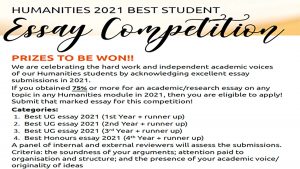Media Coverage
Home » Faculties of Humanities »Media Coverage
Academic citizenship is a vital part of our Faculty’s public profile. The academic stature of our staff makes them experts in their fields and they are often cited in news articles or asked for opinion pieces. Please click on the title to the view full article.
2021 Articles:
Article
They are burning memory, Critical Arts, 31:1, 102-109, DOI: 10.1080/02560046.2017.1318158
More in 2021:
There was much excitement at UJ due to the announcement of the Times Higher Education (THE) Impact Rankings, released on 21/4/2020. UJ is ranked in the 1st position in the world for Decent Work and Economic Growth. UJ also features among the global Top 100 (92nd) in the various United Nations’ (UN) Sustainable Development Goals (SDGs), in terms of impact.
Women’s Month 2021
1 to 31 August
Every year, in August, our country marks Women’s Month. We also pay tribute to the more than 20 000 women who marched to the Union Buildings on 9 August 1956 in protest against the extension of Pass Laws to women…”
Times have changed but women continue to struggle against various discriminations and constraints. Please take note of the webinars and the conversations to happen at UJ.
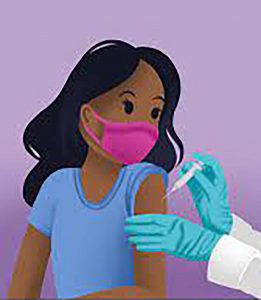
We enter into a new month and can expect lots of webinars and activities to reflect on recent events as well as to celebrate Women’s Month.
The vaccination roll-out is happening. So, don’t hesitate to get vaccinated!
We officially say goodbye to Prof Alex Broadbent as He will be starting a new position in the UK.
Thanks to the colleagues who turned up to his e- farewell meeting with amazing hats . We were joined by three ELG members (Prof Parekh, Prof Sinha and Prof De Wet) who said a few words on the occasion.
I am glad that we had this opportunity to have a virtual farewell for Alex.
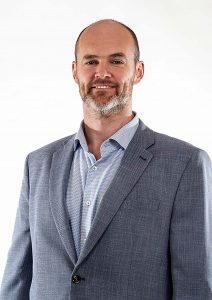
Karen Jennings, one of our History PhD students, supervised by Prof Gerald Groenewald, has had her novel An Island long-listed for the Booker Prize! Congratulations, this is amazing!
https://thebookerprizes.com/fiction/2021
Here is some media to look at:
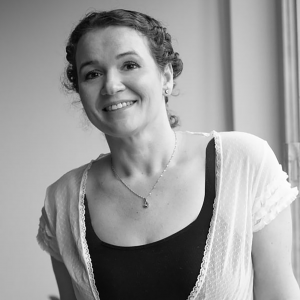
Congratulations to Mr Dumisani Sibiya! Dumisani from the Department of African Languages, presented a Teaching & Learning Master Class on Multilingualism as a tool to enhance Teaching and Learning experiences.
The class was presented under the auspices of the Division for Academic Planning, Quality Promotion and Academic.
107 people attended, and the feedback was overwhelmingly positive. A number of attendees contacted me to say that Dumisani was outstanding. Thank you, Dumisani.
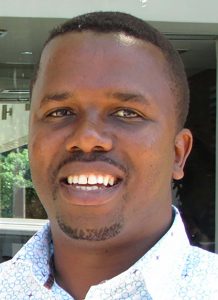
Getting to Know the Humanities Teaching & Learning Committee
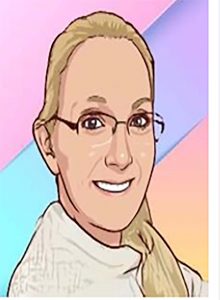
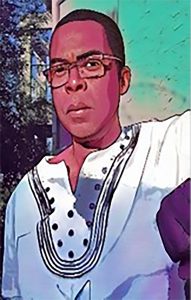
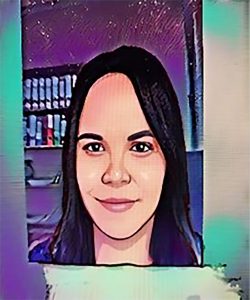
We have just received notification of: Extension of concession to 2022 to offer programmes accredited for the contact mode through the distance mode.
At this time of the year, institutions are busy planning for the 2022 academic year. In the absence of any certainty about whether and when institutions will be able to resume uninterrupted contact learning and teaching, the Higher Education Quality Committee (HEQC) has decided to extend the concession to institutions to continue offering programmes accredited for the contact mode to be offered in the distance mode for the 2022 academic year.
We are pleased with the permission gained to continue with online work. In 2022, we are planning for a blended approach and hope that we can effectively bring in contact sessions again. We will have to watch the rhythm of the pandemic, and offer firm guidelines by the end of 2021.
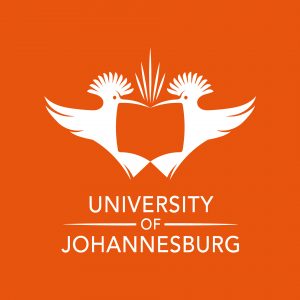
Thank you to Prof Carin Runciman:
Granting freedom: The public demand for social protection
Rofhatutshedzwa Ramaswiela, a Honours intern from Sociology, contributed to the analysis for this article and is listed as a co-author.
Better safe than sorry — SA public remains skeptical about schools opening during the pandemic
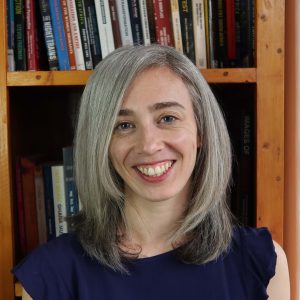
Call for Papers: Democracy from Below: Decolonizing and retheorising democracy in Africa
Virtual Colloquium
1-2 February 2022
The Centre for Social Change and the Centre for Sociological Research and Practice at the University of Johannesburg in collaboration with the South African Centre for Digital Language Resources, invites papers for an online or hybrid colloquium that interrogates the understanding and practice of democracy in the African context.
Click here for more info
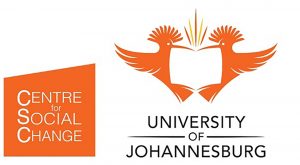
Call for papers: Post-doctoral recruitment
Critical Arts is a peer-reviewed journal publishing 6 issues a year. Three of the six numbers are reserved for general issues and single submissions. Three are allocated to theme issues.
In collaboration with the National Institute of Humanities and Social Sciences (NIHSS), Critical Arts calls for submissions from post-doctoral researchers. Qualifying articles will be published in a double issue scheduled for late 2022 or early 2023. Conducted under the management of a skilled supervising editor, Critical Arts will offer on-the-job publication training, and is intended to introduce new scholars to the international scholarly publishing environment.
One outcome will be practice-led learning by up to 20 emergent South African university-based post-doctoral authors for the double issue, embracing the entire publishing value chain, from submission to promotion, delivering articles to international readerships.
Critical Arts encourages conceptual freshness, textured writing, and experiential analysis, which draws readers into its articles, narrative themes and theoretical explorations.
Critical Arts encourages articles that influence the ways in which disciplines think about themselves. Our niche includes critical dialogues generated within the South-North and East-West relationships, with special reference to Africa.
Critical Arts includes amongst its authors original articles by Nobel Laureates J. M. Coetzee and Nadine Gordimer. Also published have been Stuart Hall, Ntongela Masilela, Leora Farber, Stacy Vorster, Handel Kashope Wright, Nhamo Mhiripiri, Jeff Sehume, Nicky Falkoff, Francis Lukhele and many others from the African diaspora, and it has included graduate students as authors and as editorial coordinators. Critical Arts is subscribed to by over 13 000 university and other libraries in South Africa, Africa, the USA and Europe via Routledge and UNISA Press, and partners also with National Inquiry Scholarly Services, Makhanda.
Congratulations to Prof Keyan Tomaselli for driving this initiative!!
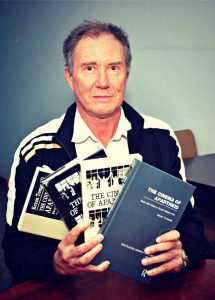
We encourage post-docs to submit!
Submission Guidelines:
Submissions should be made online via ScholarOne Manuscripts at http://mc.manuscriptcentral.com/rcrc. Submissions should be original works not simultaneously submitted elsewhere, between 5000 to 7000 words in length. Referencing should be done according to the Chicago Manual of Style.
Mileposts
Proposals/Abstracts: 300-500 words, by 10 September 2021.
An editorial committee will assess the proposals received, and make an initial selection.
Authors whose proposals are approved will be contacted by: 30 September 2021
Qualifying authors will have up to 6 months to write their papers, but many post-doctoral authors may already have articles resulting from work in progress that could be submitted earlier.
We will require proof that authors are currently registered (or recently completed) as post-doctoral students/fellows, located only at South African public universities during the years 2020-2022.
The peer review process can take anything between a few weeks and a few months, depending on the availability of reviewers, but we will work with a list of rotating post-doctoral supervisors, in conjunction with the editorial board where possible to speed up the process.
The articles accepted for publication must have been completed and approved by the journal within the year that the project is scheduled, starting 1 August 2021. Publication will occur towards the end of 2022. Authors who miss the year schedule can re-submit to a later number, in which case article processing charges will apply. The project’s budget will sponsor the article processing charges of authors included in the special issue.
Qualifying authors will be invited to participate in training workshops run by the journal, involving the publisher, Taylor & Francis and other partners, on aspects of publishing and article promotion (i.e., science communication). These will extend to short articles for The Conversation (summarising article content), and the ANFASA Magazine (discussing writing processes), amongst others.
Potential authors are encouraged to access Critical Arts articles via their institutional libraries to familiarise themselves on the journal.
Further information can be obtained from the supervising editor Dr Julie Grant) at: julieg@uj.ac.za or editorial coordinator at: criticalarts@ukzn.ac.za
The project leader is Prof Keyan G Tomaselli, co-editor, University of Johannesburg. keyant@uj.ac.za
Dates to remember:
August 2021: Call for papers circulated
Sept 10, 2021: Abstract submission
Selection of 20 Abstracts for full paper invitation: 30 Sept
Full paper submission: 15 March or sooner. Submissions will be processed as and when they are submitted. There is no need for authors to wait for the deadline.
April 30, 2022: First round of peer review completed.
June 1: 2022: Revision deadline
July 1, 2022: Submission of accepted papers for copyediting, production and queuing.
October 22, 2022: publication of double issue (up to 20 papers)
Dear Friends of the Konrad-Adenauer-Stiftung,
We are excited to announce that applications for the 2022 Konrad-Adenauer-Stiftung (KAS) and South African Institute of International Affairs (SAIIA) scholarship are now open!
This unique scholarship programme provides funding to complete a full-year internship at SAIIA in parallel to a Masters degree in International Relations, Political Science, Economics, Law or Journalism at WITS, UCT or Stellenbosch University… [continued]
Successful applicants have to meet the entry requirements for a Masters degree at the listed institutions, be a South African resident (or eligible for residency status), and be younger than 30 years old.
Successful candidates receive a bursary for their tuition fees
and a monthly stipend to cover their living costs and accommodation. The programme is output-focused and scholars are assigned mentors.
Previous participants went on to pursue senior positions in the public and private sectors and provide a valuable alumni network.
To start the application process, please visit: https://briefings.themidpoint.org.za/kssp-application-2022/
Click here to view the KAS/SAIIA Scholarship Requirements.
Please note that Terms and Conditions apply.
This message is from the:
The KAS South Africa team
Great innovation from the History Department.
History’s 1A module (Global History) has (almost) completed a 4IR class project. This was a digital archive in which students submitted photographs and written work, documenting what they wanted to share about life under lockdown. With 2000 submissions, in an array of home languages, organised in 12 thematic collections, and using geo-location technology and Dublin Core metadata, the archive was one answer to questions that were asked in class: How will future historians write about our own, local moment of global change during Covid-19? What sources will they have available to document daily life among ‘ordinary’ young people (and not merely those of officials and elites)?
Check it out at https://joburg21.omeka.net/
This is outstanding work, Prof Thembisa Waetjen!
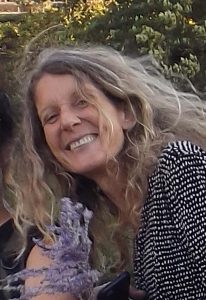
Wonderful article, co-written by Prof Lauren Graham:
See Lauren’s article on the piloting of the Basic Package of Support Programme. In the article it is stated:
On June 16, as we remember and honour the agency of the youth of the 1976 uprising, it is critical that we also honour the lives, actions and aspirations of the current generation of young people.
Decades of research with SA’s youth puts forward one strong message: most youth use their agency, on an almost daily basis, in an attempt to move their lives towards independently taking care of themselves and those around them. But they face enormous barriers and challenges to improve their lives.
So, they need to be supported. As one young research participant in Atlantis, Western Cape, said a few weeks ago: “We could be more if people believed in us.”
Link to article:
https://www.timeslive.co.za/ideas/2021-06-16-opinion–we-could-be-more-if-people-believed-in-us/
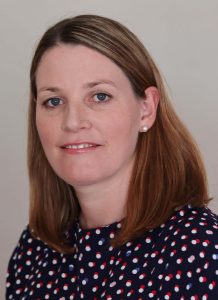
Rave Reviews for Dr Trevor Ngwane!!
I have just noticed many positive reviews of Dr Ngwane’s book, so I am circulating this great news:
‘One of the most exciting and provocative books that I’ve read in a long time’
– Mike Davis, author of Planet of the Slums
In a study conducted in dozens of South African shack settlements, where more than 9 million people live, Trevor Ngwane finds thriving shack dweller committees that govern local life, are responsive to popular needs and provide a voice for the community. These committees, ‘amakomiti’, organise the provision of basic services such as water, sanitation, public works and crime prevention.
Amakomiti argues that shack dwellers are an essential part of the urban population, whose political agency must be recognised and respected. In a world searching for democratic alternatives that serve the many and not the few, it is to the shack dwellers, rather than those in political power, that we should turn.
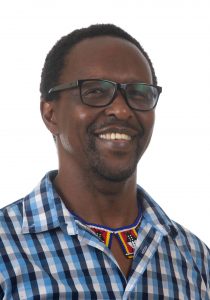
Prof Gilbert Motsaathebe has published in this special collection celebrated by the University.
“Please find attached a publication on Teaching and Learning at UJ. The Division of Academic Planning, Quality Promotion and Academic Staff Development (DAPQPASD) has published “The Teaching Innovation for the 21st Century: A collection of UJ Teaching and Learning Vignettes”. This project showcases innovative teaching practices at UJ and is motivated by the desire to develop an intensive and rich scholarship of teaching and learning. This will become a well-utilised resource in years to come, as we continue to contend with rapidly evolving technologies”.

2020 Articles:
Guest Editor Pier Paolo Frassinelli
More in 2020:
Alex Broadbent:
- Audio: Interview with Power FM: lack of evidence for lockdown and importance of considering things besides COVID deaths @Powerfm987
- Video: Interview with Newzroom Africa: lack of evidence base for lockdown, need for rational framework for decision-making as outlined in our recent report
- Reading: A Framework for Decisions in a Post-COVID World – South Africa – Report 1.2
Jane Duncan:
- A podcast with media lawyer Dario Milo and investigative journalist Sam Sole about the amaBhungane Centre for Investigative Journalism constitutional challenge to Rica, which is to be decided by the Constitutional Court in the coming weeks: https://www.webberwentzel.com/News/Pages/media-law-surveillance-episode-3.aspx?fbclid=IwAR116uTwlVsmWxOJ2J32y8AZGf8DFY7DWXvIJh86ZXamwJ2dtJ6Opn0wwzc
- A podcast with Radio Islam International about COVID-19, digital contact tracing in South Africa:https://soundcloud.com/radioislam/citizens-should-remain-vigilant-over-state-surveillance-during-covid-19-crisis-prof-jane-duncan?fbclid=IwAR1spqlxgDz–rCLPznJuQmCLCcRj2hESjgaoYTT-_oOWHFYx55_ameHO24
A piece for the Daily Maverick on the need for Denel to shift from weapons manufacturing into socially useful work:https://www.dailymaverick.co.za/article/2020-04-21-from-weapons-to-ventilators-time-for-denel-to-do-some-socially-useful-work/?fbclid=IwAR2H-j4PRdK96_Fa8IW23V3NYeU66-E7Dkmd0V40ulQMDYZsSg9MtcHSECU
2018 and 2019 Articles:
Article
The Role of Reporting Standardsin producing Robust Literature Reviews
By: Neal Robert Haddaway
Article
Ancient DNA research makes an important addition to our understanding of human history
By: Marlize Lombard
Article
New amendments to labour legislation are likely to increase unprotected strikes
By: Carin Runciman
More in 2018 and 2019:
Op-Ed What Ramaphosa needs to do to fix state spying: Jane Duncan

